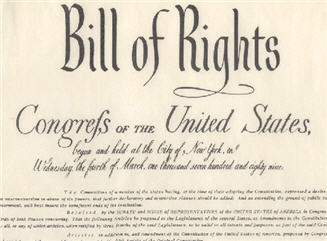A Bill of Rights for the social Web

The social Web is in its early days, like the colonies that formed on the East coast of North America, grappling with a new and uncharted land and taxation without representation. We have fledging colonies of users growing by millions per month on separate islands, and a small minority leading the way to a promised land that few can comprehend.
In this case, the promised land is gaining data and profile independence from Facebook, MySpace, Bebo, Google and others who have constructed barriers, a kind of tax on user data freedom.
Joseph Smarr, Marc Canter, Robert Scoble, and Michael Arrington have created a Bill of Rights for the digital generation, and correctly characterize it as a blog post intended to spur debate and discussion. Let the dialog begin.
It will be interesting to see if a digital Bill of Rights holds up over several centuries as well as the U.S. Bill of Rights, which included freedom of speech, press, religion and assembly, and the right to be free of unreasonable search and seizure; cruel and unusual punishment; and compelled self-incrimination.
Following is the document via Marc Canter:
Preamble: There are already many who support the ideas laid out in this Bill of Rights, but we are actively seeking to grow the roster of those publicly backing the principles and approaches it outlines. That said, this Bill of Rights is not a document “carved in stone” or written on paper. It is a blog post, and it intended to spur conversation and debate, which will naturally lead to tweaks of the language. So, let’s get the dialogue going and get as many of the major stakeholders on board as we can!
A Bill of Rights for Users of the Social Web Authored by Joseph Smarr, Marc Canter, Robert Scoble, and Michael Arrington September 4, 2007
We publicly assert that all users of the social web are entitled to certain fundamental rights, specifically:
- Ownership of their own personal information, including:
- their own profile data
- the list of people they are connected to
- the activity stream of content they create;
- Control of whether and how such personal information is shared with others; and
- Freedom to grant persistent access to their personal information to trusted external sites.
Sites supporting these rights shall:
- Allow their users to syndicate their own profile data, their friends list, and the data that’s shared with them via the service, using a persistent URL or API token and open data formats;
- Allow their users to syndicate their own stream of activity outside the site;
- Allow their users to link from their profile pages to external identifiers in a public way; and
- Allow their users to discover who else they know is also on their site, using the same external identifiers made available for lookup within the service
Check out the Data Sharing Summit this week for more discussion on the topic of liberating data.
